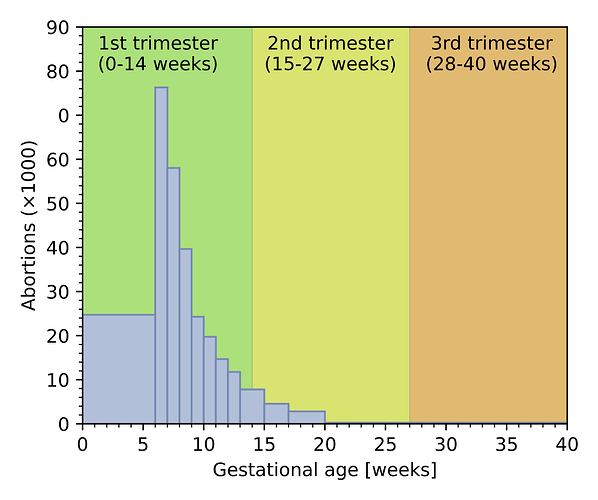Unfortunately women, nor their partners for that matter, don’t get to pick between them. They are now both in place and the 6 week ban more or less eliminates elective abortions in the state. What this allows is a long way from what you describe as a reasonable set of restrictions so it seems what you call “reasonable enough” legislation is very different than what you claim to think is a reasonable set of limits.
Due to the way pregnancy timetables are calculated 6 weeks is very early, early enough that lots of pregnancies are not even identified at that point. These laws now collectively restrict the vast majority of elective abortions after that 6 week point. We also know that the challenges of meeting the medical exceptions that are technically afforded after the 6 week limit are, by intention, very difficult to demonstrate and effectively forces a lot a providers out of the market. The result is even women who identify their need for an abortion before 6 weeks can find it much harder in practice to find a provider.
There are differences of opinion and some people may agree with what this legislation does. They don’t get to do so and call it anything but an extreme position though.
